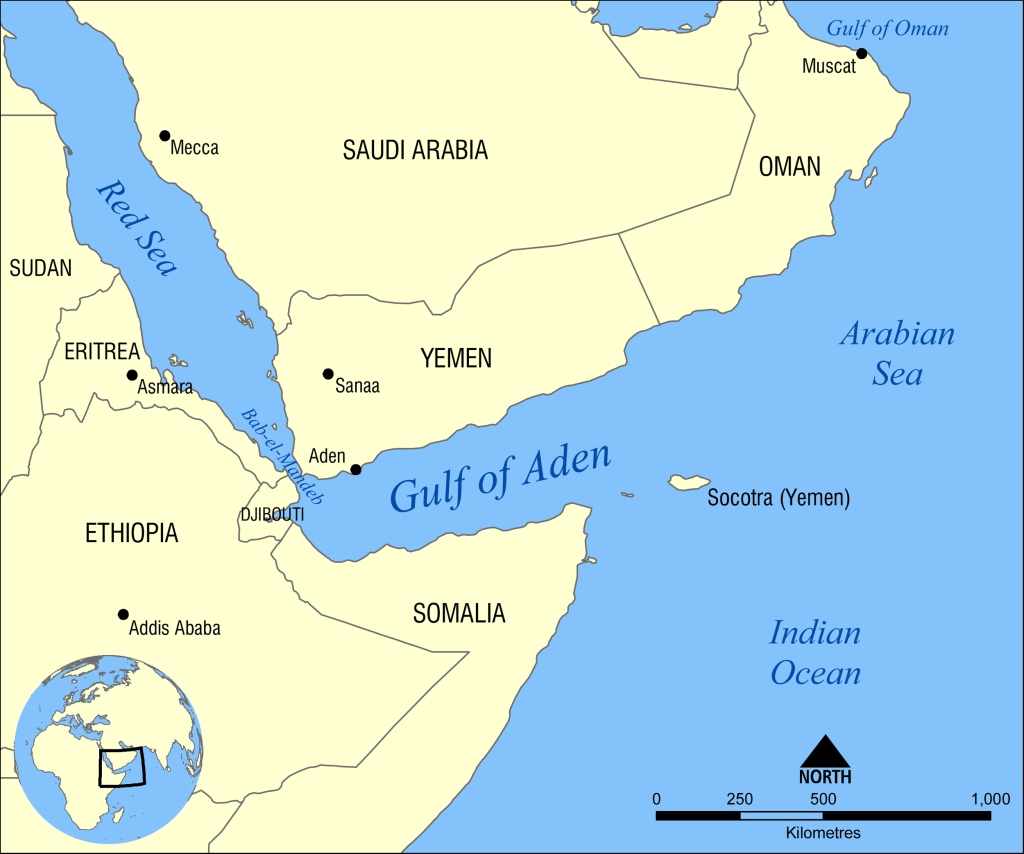
On the mountainous southwest coast of the Arabian Peninsula there once thrived a city named Aden. Perched above the warm gulf waters of the Arabian Sea while its mountains shielded it from inland marauders, it linked trading between East and West.
The desert was its abode. It produced no fauna or flora, nor did it possess a fresh source of water. Yet, its residents were incredibly wealthy. Only merchants–primarily from India and Egypt–occupied the city with their companies of ships and porters. They lived off rainwater collected by Bedouins in the famous old reservoir tanks called the Cisterns of Tawali; and they ate fish caught by the city’s resident fishermen.
For long, the spot served as a convenient stop for global sea trade between India and Europe & the Middle East. The abundant, exotic resources and wares coming out of the Indian Ocean found there way west through here. So successful were the merchants of Aden that they turned the natural harbor of its gulf into the flourishing port city that is now today the powerful capital of Yemen (modern: Aden, Yemen).
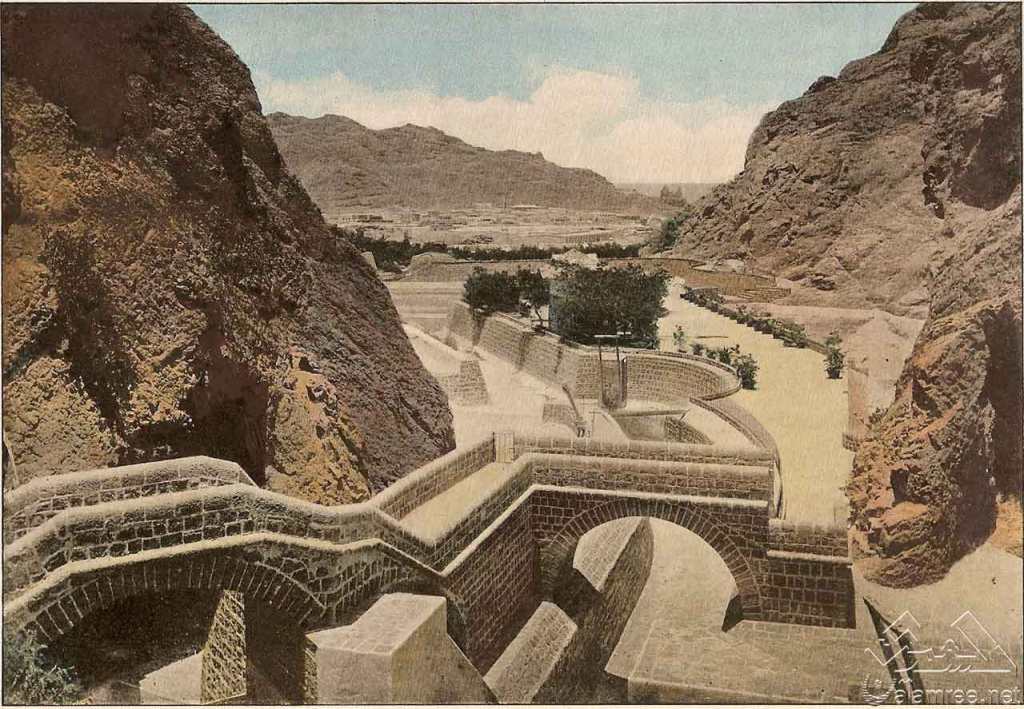
Cisterns of Tawila, Aden 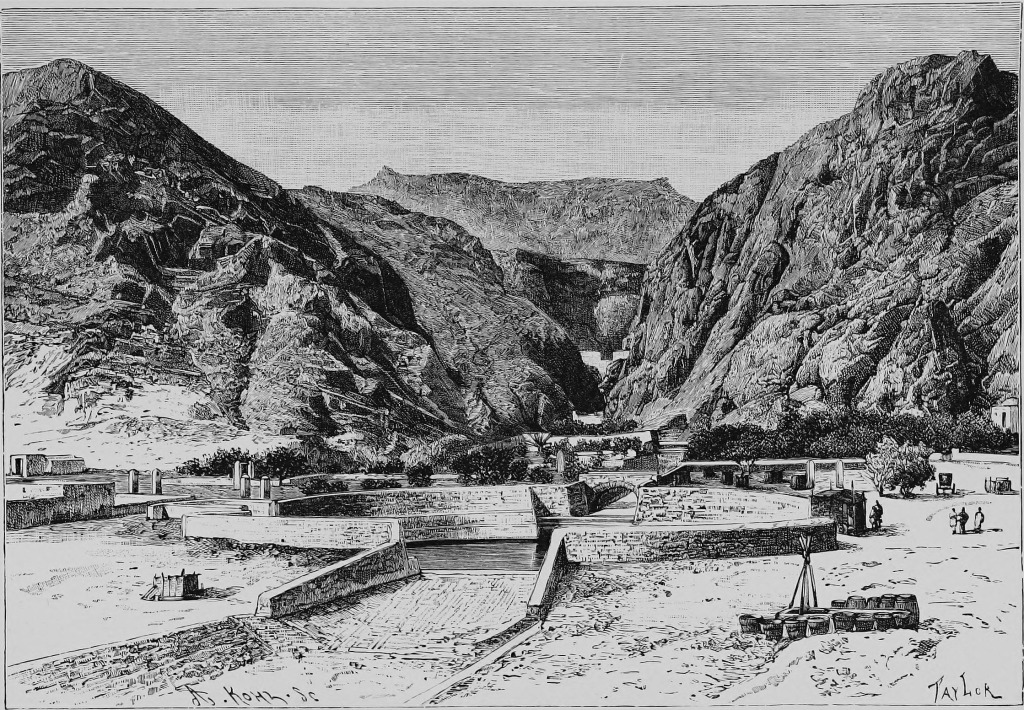
Cisterns of Tawila, Aden 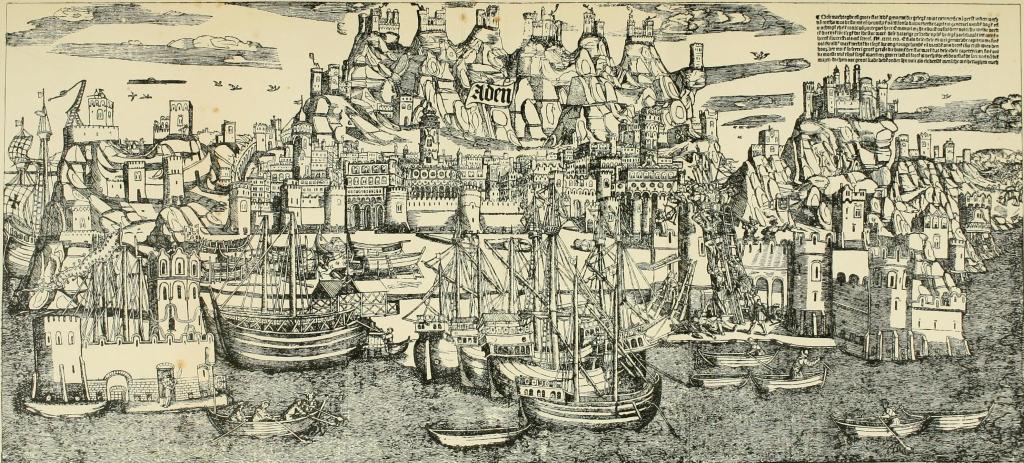
Medieval Aden 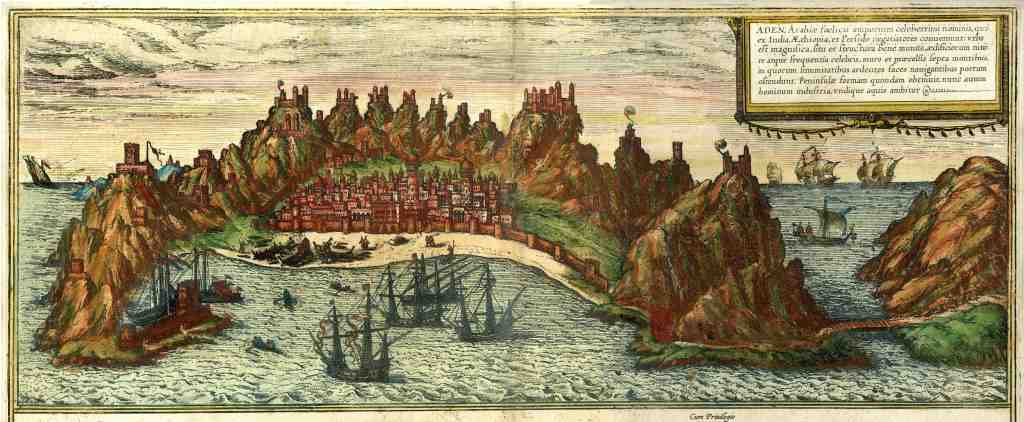
Gulf of Aden
Traders from around the word came to them to export goods from their end of the world and import goods from the other end. Money no longer being an object of concern for the merchants of Aden, they began to rival over points of pride. The famed Moroccan traveler, Ibn Battuta, once passed through the city in-around 1329 and witnessed such a rivalry in action:
One day, two merchants both required a ram, a male sheep. Unbeknownst to the other, they each sent one of their slave boys to the market bazaar in order to purchase it. But on that day there was only one ram available for sale. So, the two slave boys began to bid for the beast. Bidding went up as high as 400 dirham, or 400 silver coins. The winning slave-boy proudly claimed the ram, announcing that his master had only given him 300 dirham for the ram but that he was using his own, personal money to supplement the fund–so dedicated was he to his master.
When the master merchant received the ram and learned of his slave’s actions, he awarded the slave with 1,000 dirham! To the already wealthy man, loyalty and dedication were more valuable than coin. As for the other merchant, he beat his slave, took all his money, and kicked him out of the city, left to burn in the harsh Arabian Desert.
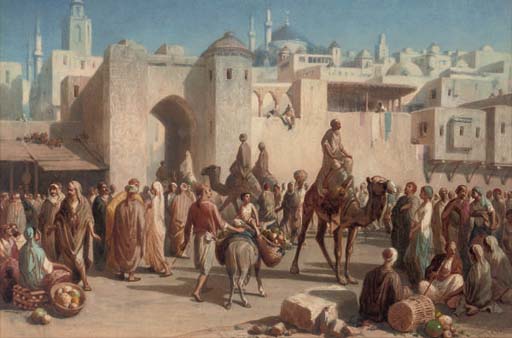
Source: Ibn, Batuta, and Tim Mackintosh-Smith. The Travels of Ibn Battutah. London: Picador, 2002. Print.
Categories: Medieval
2 replies ›